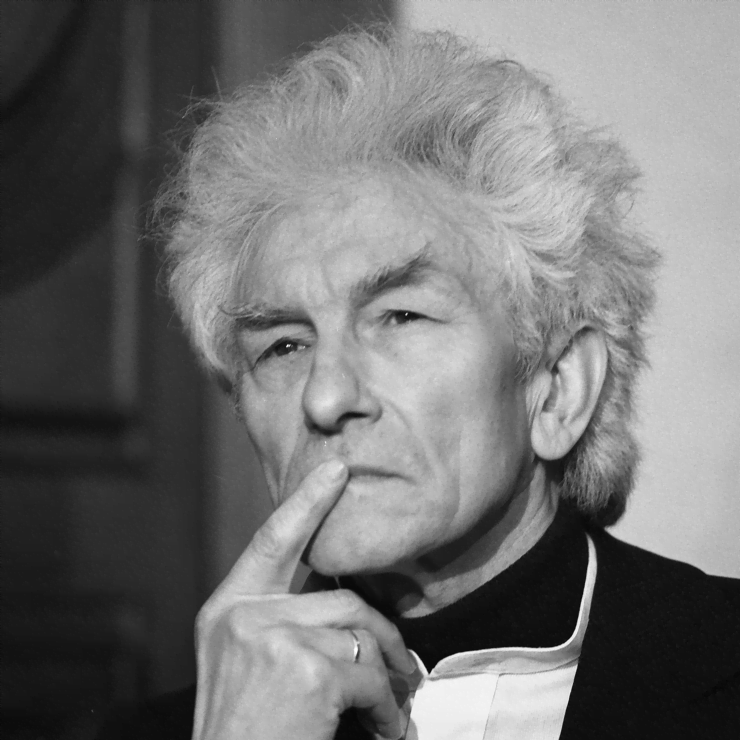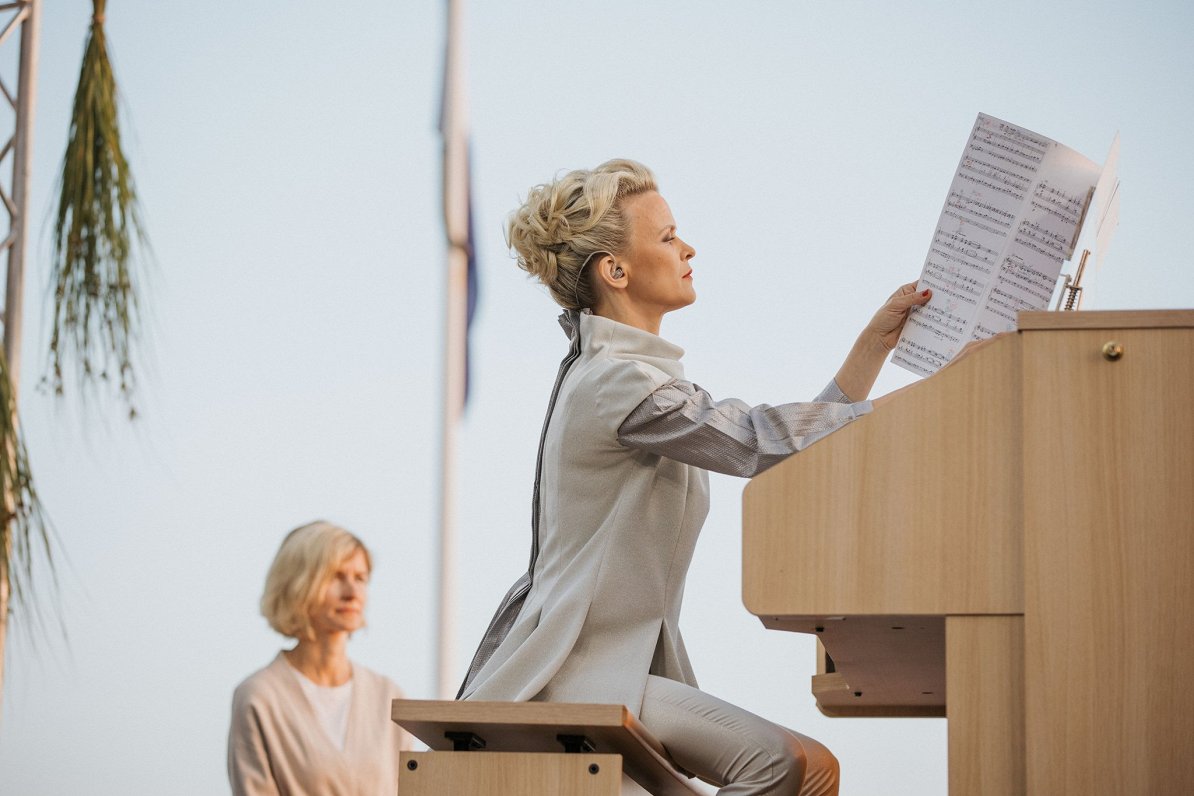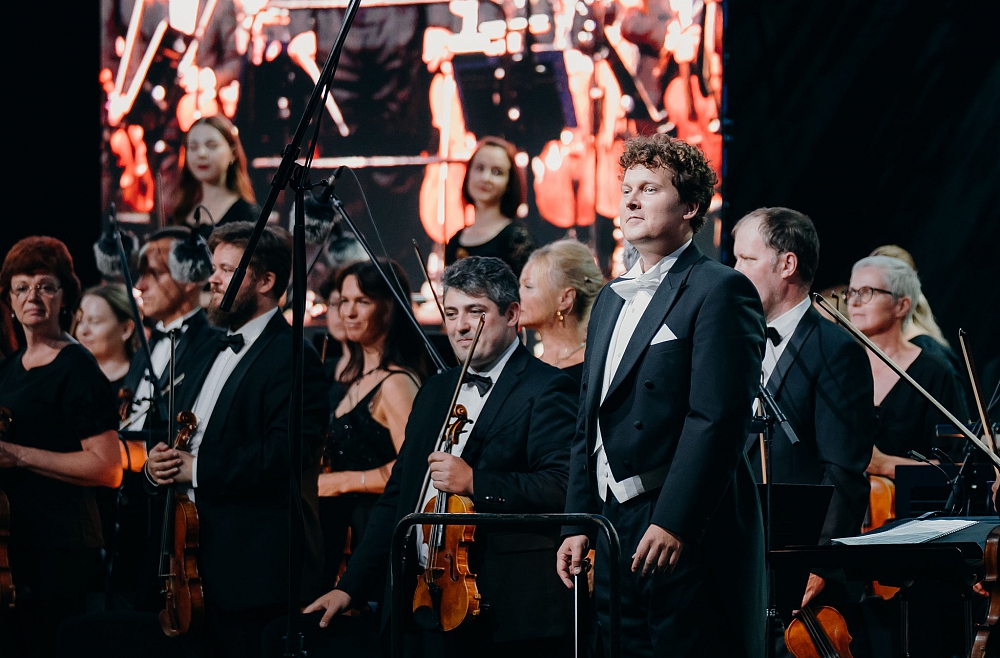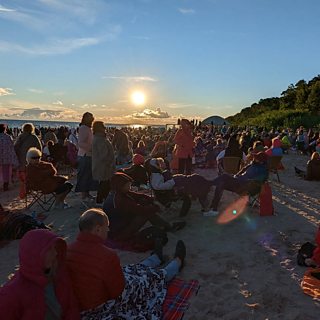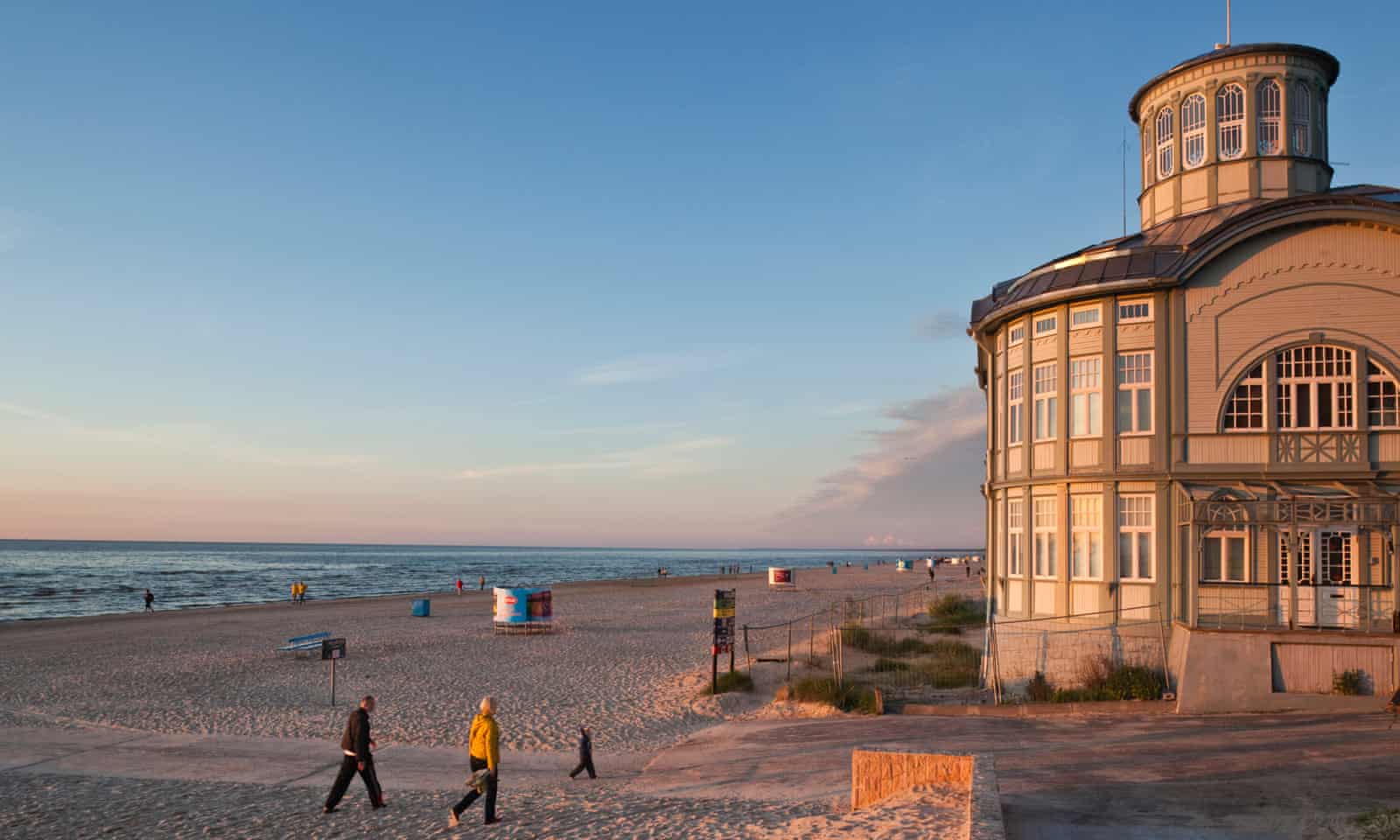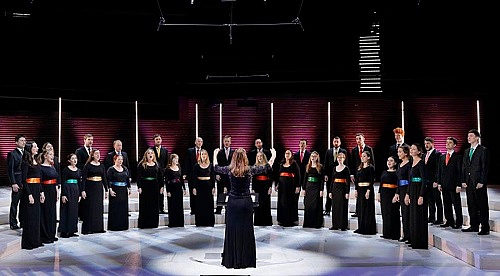Participants:Renārs Kaupers,
Jānis Strazdiņš,
Latvian Radio Choir,
Instrumental group,
Conductor Sigvards Kļava.
In honour of the great poet Imants Ziedonis’ 90th birthday, the Latvian Radio Choir and conductor Sigvards Kļava invite the audience to a concert production that captured the hearts of listeners already a decade ago. Back then, one of the authors of the idea and the director of the production was the late Uģis Brikmanis, who always was and will always remain a friend of the Latvian Radio Choir. This year, the songs of Imants Kalniņš with the poetry of Imants Ziedonis will shine in new colours in the special version of the production – the poet’s jubilee year version.
The collaboration between the both greats has already become legendary – Kalniņš has used Ziedonis’ verses in his oratorio Dzejnieks un Nāra (The Poet and the Mermaid), opera Spēlēju, Dancoju (I Played, I Danced); their work together has also been saved within the film Pūt, vējiņi (Blow, ye Wind!). The production will contain fragments from Dzejnieks un nāra, the popular hits Mīlestība divreiz nenāk (Love doesn’t come Twice), Visskaistākās ogas pasaulē (The most Beautiful Berries in the World), Buramdziesmiņa (The Bewitching Song) and a number of less widely known songs.
For this production, the songs of Imants Kalniņš have been arranged by the singer and composer Andris Sējāns, guitarist Kaspars Zemītis and the musical director of the Valmiera Theatre, Emīls Zilberts.
Alongside the songs, voice recordings of Imants Ziedonis will be played, taken from different poetry readings and essay-like contemplations or “games of notions”.
The outstanding performers of Imants Kalniņš music Renārs Kaupers, Jānis Strazdiņš, and the Latvian Radio Choir soloist Iveta Apine will perform at the production. The instrumental accompaniment has been entrusted to the flautist Aldis Klučnieks, violinist Agate Pooka, guitarist Kaspars Zemītis, double bassist Mārcis Lipskis, percussionist Ivo Krūskops and pianist Rihards Plešanovs.
The spiritual core of this production will be Ziedonis’s contemplative notions children (friendliness to be explored), city (this vast prison), province (an overgrown territory in opposition to Riga as a genius or idiotic head with tiny, feeble arms and legs), spring (a plain, unpleasant season), road (one must walk until wisdom starts seeping in through one’s feet), letters (one must be very cultured to write letters), butterflies (the elusive, ephemeral beings that Ziedonis adored) and others.


